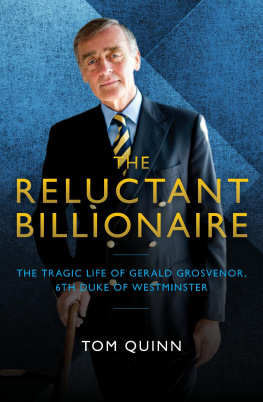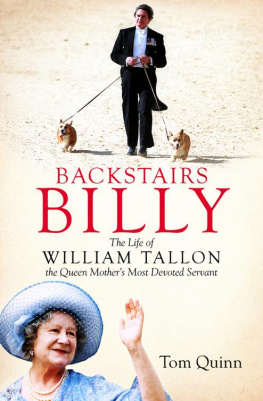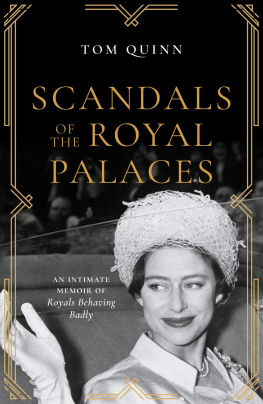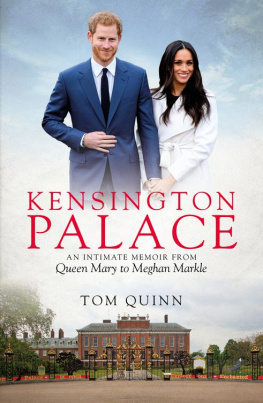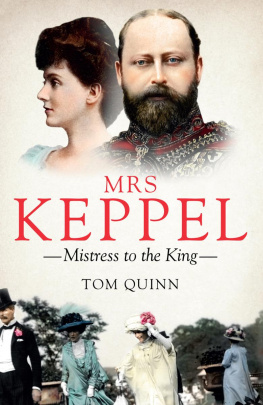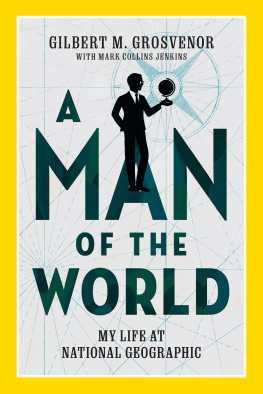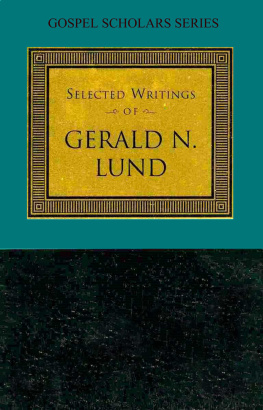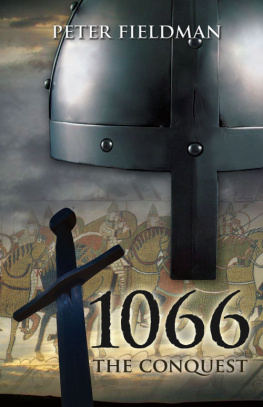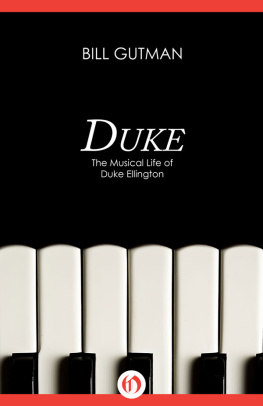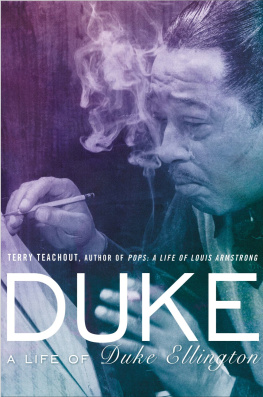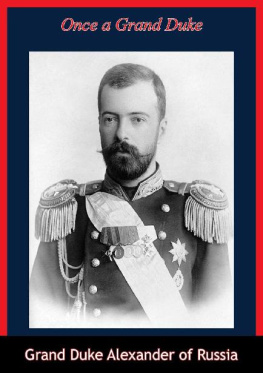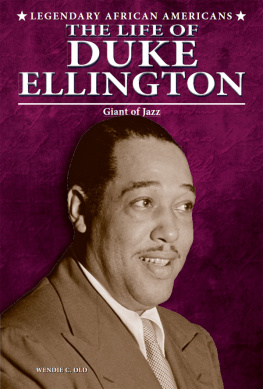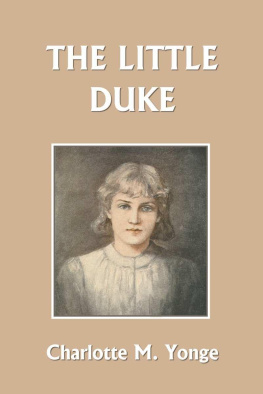The man who dies rich dies disgraced.
W riting about the recently dead is always fraught with difficulty. Gerald Grosvenor, the 6th Duke of Westminster and the subject of this book, died in August 2016, not long after a widely publicised scandal that, in the words of one of the dukes friends, made a highly sensitive man a laughing stock and may indeed have hastened his death.
The dukes family and friends are understandably sensitive to any further media scrutiny, but I was surprised by the Grosvenor Group and the Duchess of Westminsters reaction to my request for an interview, given that I was offering them the chance to put more of the 6th Dukes good qualities on record than might otherwise have been possible.
I wrote to the duchess requesting an interview and did not receive a reply. She passed my letter without acknowledgement and without notifying me to her staff in the Grosvenor Groups communications department. It was a reaction that perhaps typifies the Grosvenor familys relations with ordinary people over the centuries. The Grosvenor Groups reaction was similar. After some time I was sent a curt email that simply stated that the group wanted nothing to do with this project. One sensed the sheer terror that the world of the British aristocracy feels at the prospect of public scrutiny.
Other people who were close to the duke reacted in a similar fashion. It was as if there was a general fear among them that some awful secret might be disclosed if anyone spoke to me. And of course there was at least one awful secret as readers of this book will discover.
Luckily, long before I began the book, I had already spoken to many people who had worked for or with the duke in one capacity or another, or who were casual acquaintances who had met him several times but did not know him intimately (note that I say worked for rather than were friends with). His friends were more or less from the same background and it is easy to imagine them huddled in Whites or Boodles complaining that some dreadful lower-decks type was trying to find things out about Gerald.
The only response I received from those few of his fellow aristocrats who replied to my letters was that I should write about the late dukes love of the countryside. It struck me as a very curious thing that when the duke was alive, this, with few exceptions, was just about the only thing anyone would say about him. It was pretty much the only thing he would say about himself. I became so irritated (but also intrigued) by this automatic response to any and every query about the duke that I began to reply by saying, If I hear any more about the dukes love of the countryside, I will throw myself in the river, and I have to admit I received several replies suggesting it might be better for everyone if I did just that.
It was all rather mysterious, and it made piecing together a real sense of the dukes life even more of a challenge. What some of his friends forgot, of course, was that Gerald Grosvenor also happened to have numerous acquaintances who knew him well, who often felt enormous sympathy with his predicament, but did not rate him highly. These people were far from reluctant to share their memories with me. Others who were not part of the dukes aristocratic circle but counted themselves as friends, knew him well from the charitable dinner circuit or through business connections, were keen to share their memories of what one called a deeply divided man.
This book is not about a man of action; it is not about a great public figure or statesman; it is not about a man who was a philanthropist in the manner of Bill Gates or Andrew Carnegie. It is, if you like, the story of a man who wanted to hide, but was dragged into an unsympathetic public role that inspired envy in others but no pleasure in the man destined to endure it. He was not a great man, as he would have been the first to admit; he played no part in any of the momentous events of his lifetime, so the details of his business and professional life, such as it was, are of less interest than his inner world. It is this inner world that I have tried to capture here through my own conversations with the duke and through the memories of those who knew him but were not exclusively part of the aristocratic circle in which, at times, he felt imprisoned.
One aristocratic landowner who knew Gerald Grosvenor well suggested that in an earlier epoch I would have been horse-whipped for writing this book, and this is very typical of one part of the world that surrounded the duke. It is a world where people vote Conservative because they believe the Conservatives will reduce the number of people on benefits, at the same time choosing to forget that British landowners are the recipients of the biggest state handouts of all, thanks to the European Union system of subsidies. And big landowners, unlike single parents, have absolutely no need of the money.
Some ancient families have embraced the modern world and realised that the power of the old aristocracy is not what it once was. But the modern world seems in many ways to have bypassed the Grosvenor family, and the old code of silence descended rapidly when the Westminsters and their circle discovered that someone wished to write about one of their own but would not take their advice to write only about his love of the countryside.
The truth, then, is that like most immensely wealthy families whose gilded lives depend on inherited wealth, the Grosvenors would much rather be left entirely alone. That was true before the sexual scandal that dogged the 6th Dukes final years and perhaps hastened his death, but even more so in the years since. Again, this is entirely understandable. But scrutiny is perhaps a small price to pay for a dukedom and a role as head of a global business empire that like any other business seeks entirely legitimately to maximise its profits and minimise its tax bill.
As Chris Bryant puts it in his 2017 book, Entitled: A Critical History of the British Aristocracy:
The primary means of squirrelling away substantial assets so as to preserve them intact and deliver a healthy income for aristocratic descendants without bothering the taxman is the trust. Countless peers with landholdings and stately homes have put all their assets into discretionary trusts, thereby avoiding both public scrutiny and inheritance tax. This is what the Duke of Westminster has done with the Grosvenor estates whose trustees, chaired by the duke, dole out benefits and payments to the family while keeping the assets separate from any individuals estate.
* * *
The 6th Duke of Westminsters life is fascinating because it embodies the truth of the old clich: money doesnt make you happy. By temperament, intellectual ability and personality, Gerald Grosvenor was entirely unsuited to the wealth and position he inherited. Money and position, as I hope this book will show, actually made him profoundly unhappy and almost certainly led him into sexual escapades that probably contributed to his early death.
Much of this book relies on a number of interviews I was able to conduct with the duke himself during the 1980s and 1990s. He very rarely gave interviews but agreed to see me as I think he felt I was at least nominally part of the small world within which he felt safe. The duke loved shooting shooting birds and animals, that is and I had initially written to him asking for an interview for a very old-fashioned and deeply eccentric weekly countryside magazine that covered everything from what sort of fly to use for trout during a thunderstorm to the various merits of sidelock and boxlock shotguns.

